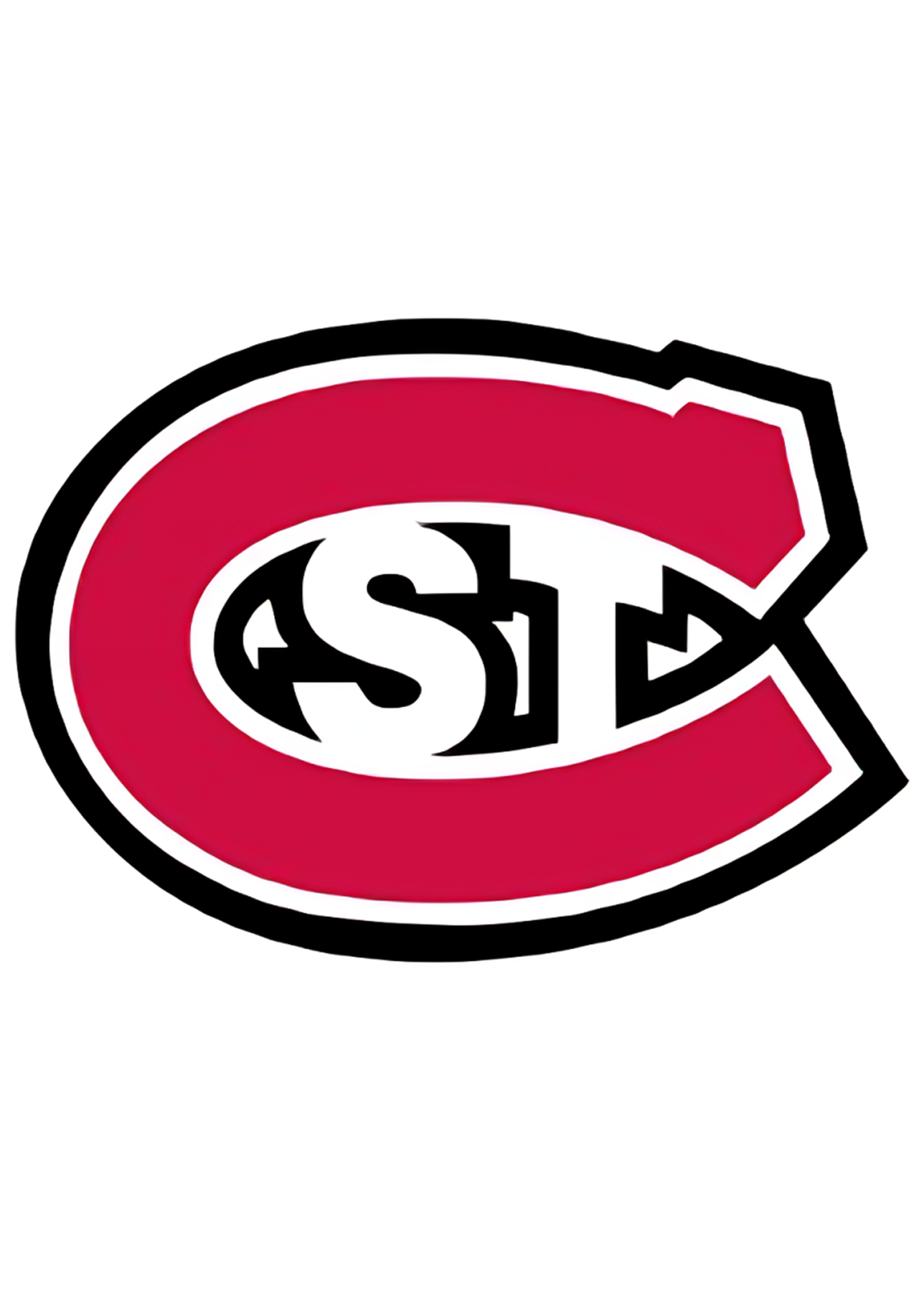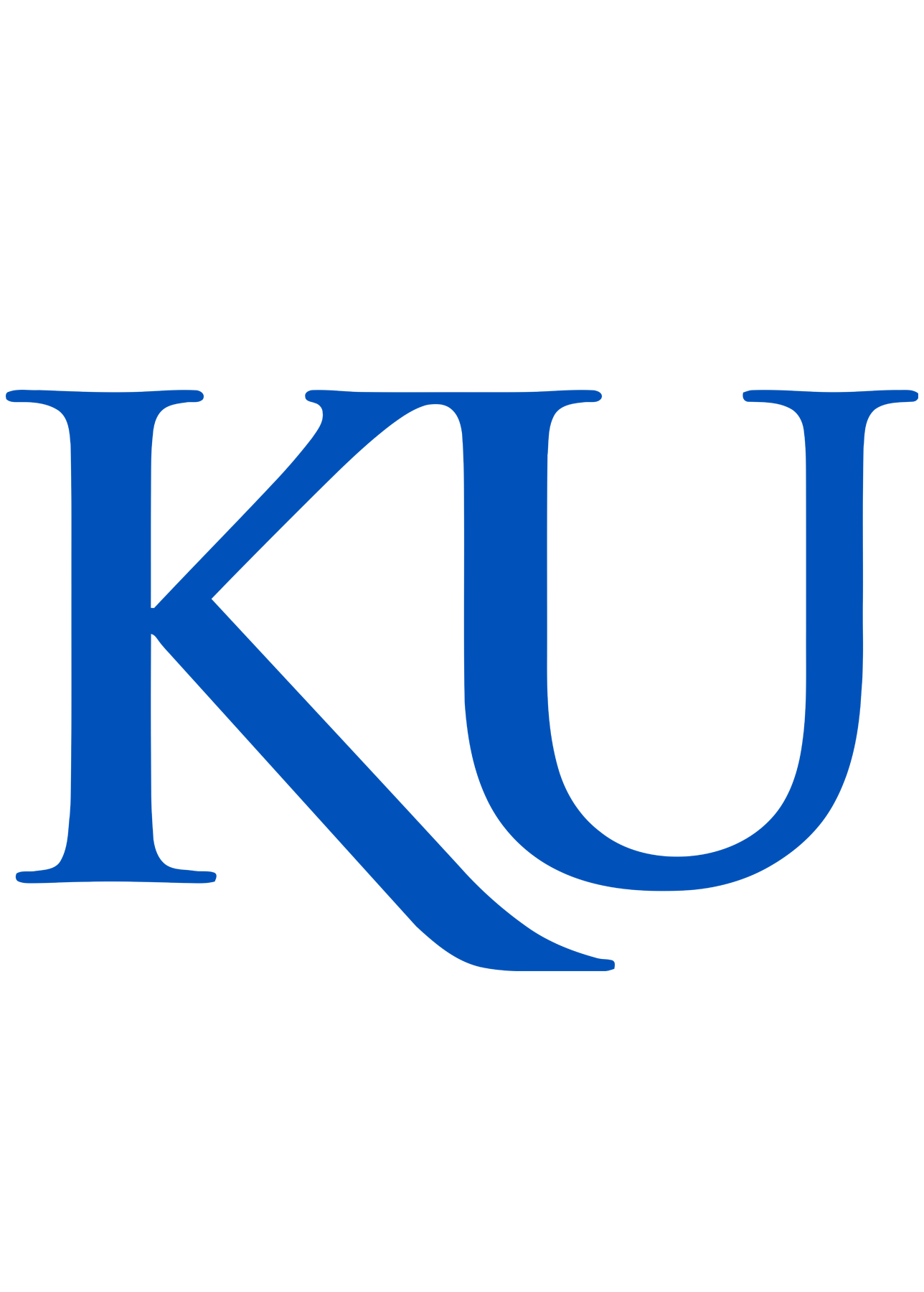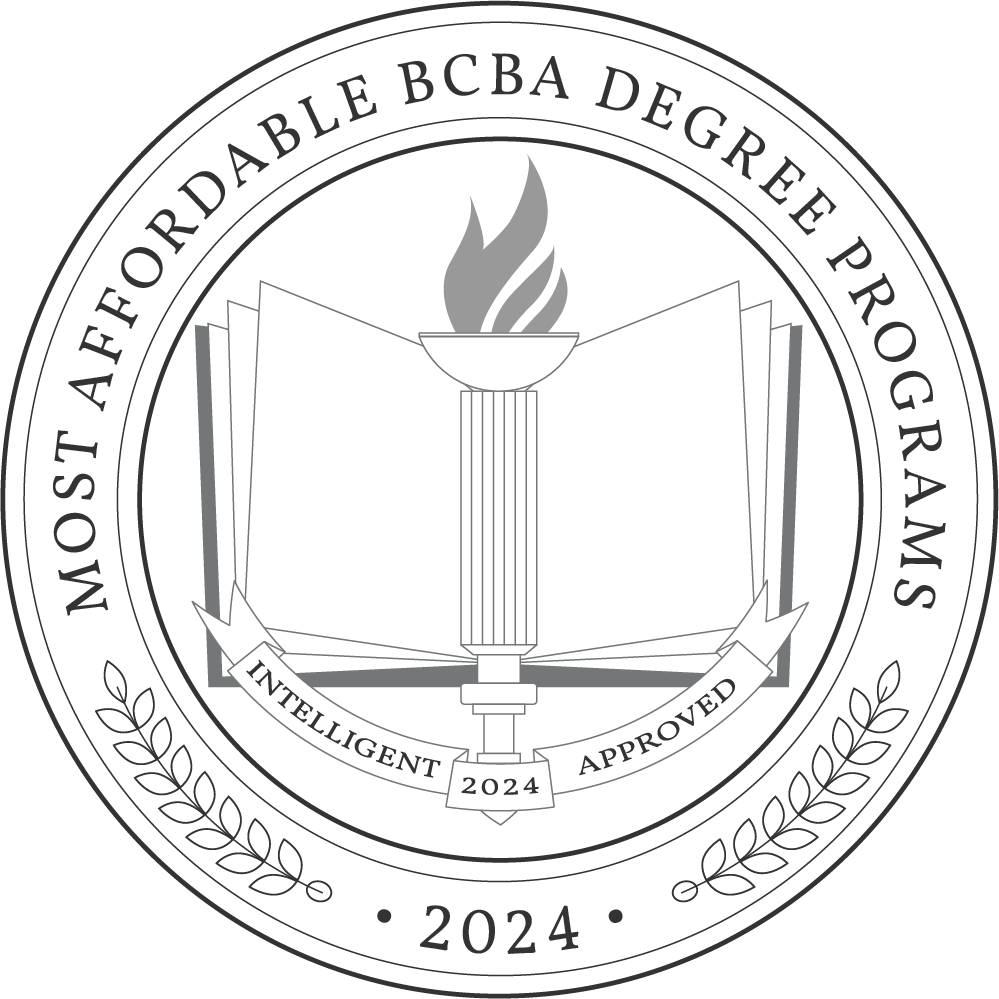Behavior analysts use proven scientific principles and procedures to help individuals with autism spectrum disorders, intellectual and developmental disabilities, brain injuries, dementia, and other conditions build skills and improve social behavior.
To become a Board Certified Behavior Analyst (BCBA), individuals must have a graduate-level education in applied behavior analysis (ABA) that fulfills the requirements set by the Behavior Analyst Certification Board (BACB). Options include a Master of Arts (MA), Master of Science (MS), or graduate certificate paired with a master’s degree in a related field. Some schools offer a bachelor’s degree in applied behavior analysis for undergraduate students.
In order to help students find the right BCBA degree program for their budget, we compiled this list of the most affordable bachelor’s and master’s BCBA degree programs.
Cost Breakdown for a BCBA Degree Program
Tuition may be the primary cost students associate with earning a BCBA degree. However, other expenses contribute to the overall amount students pay for their programs.
Tuition
Tuition makes up the bulk of what students pay to get a BCBA degree, and it will vary from school to school. Schools typically charge tuition based on a student’s enrollment status. Full-time students typically pay a flat, per-term tuition rate, while part-time students will pay per credit hour. For the most accurate information about a school’s tuition, students should speak to a financial aid counselor at the institution.
Fees
It’s also common practice for schools to charge additional fees for specific services or resources. For on-campus programs, students may have to pay fees for campus activities, technology services like printing, and parking. There may also be program-specific fees, like background checks or certification exams for BCBA students. Fees may be assessed on a one-time, annual, or per-term basis. Confirm the fees associated with your program and factor that cost into
your budget.
Room and board
If you’re attending a BCBA degree program in person, you may also consider living on campus. According to the National Center for Education Statistics (NCES), the annual cost of room and board (on-campus meal plans) was $13,175 for the 2022-23 academic year. Living off campus may be less expensive, but it’s still important to budget for housing and living expenses, including commuting costs like gas, parking, or public transit fees.
Books and supplies
According to the Education Data Initiative, the average postsecondary student spent between $628 and $1,200 for books and supplies during the 2021-2022 academic year. Before starting your BCBA degree program, assess your current technology and upgrade if you need a more reliable computer or internet access.
Factors Influencing the Cost of a BCBA Degree Program
Tuition for a BCBA degree program can vary widely based on the following factors:
Public vs. private institution
Public colleges receive money from federal and state governments to fund their operations and subsidize tuition costs, particularly for students who live in the state where the school is located. Therefore, you’ll likely find the lowest tuition as an in-state student at a public institution. Out-of-state students who attend public universities typically pay a higher tuition rate because their taxes aren’t subsidizing their education. For example, for public universities on this list, the average per-credit cost for in-state students is $511, while out-of-state students pay an average of $1,040 per credit hour.
Meanwhile, private colleges, which don’t receive government funding, charge higher tuition rates because they rely more on tuition as a revenue source. Private institutions charge all students the same tuition rate, regardless of residency. The average per-credit tuition rate for private institutions on this list is $1,208.
Nonprofit vs. for-profit
Colleges are also classified as non-profit or for-profit. All public and most private universities are non-profit, which means they must reinvest their revenue into the institution through faculty and staff salaries, infrastructure, student services, and more. For-profit schools operate like corporations, with the primary goal of earning a profit. Although tuition rates may be lower at for-profit schools, students should consider that because of their structure, for-profit schools invest less in faculty, infrastructure, and other student resources, which can impact the quality of education they receive. If you’re considering a for-profit school, carefully review how the school invests its money and what its student outcomes are.
Student military status
Students who are active-duty military, veterans, or the spouse or child of a member of the Armed Services may qualify for tuition discounts. If you think you might be eligible for a military tuition discount, speak to the school’s financial aid office for more information.
Number of credits and completion time
Essentially, the more time you spend on your education, the more you’ll pay. The minimum number of credits for a bachelor’s degree is 120, which typically translates to four years of full-time study. Total credits for graduate programs vary. Most BCBA master’s programs are 30-45 credits. If you have college credits from a previously attended program, you may be able to transfer those credits to your BCBA degree program, decreasing your completion time and costs. If this situation applies to you, seeking out a degree completion program can help make earning your BCBA degree more affordable.
9 Most Affordable BCBA Degree Programs
Institution Type
Status
- Intelligent Score
- Alphabetically By University Name
- Acceptance Rate
- Enrollment
- In-state Graduate Tuition
- Out-of-state Graduate Tuition
- In-state Undergraduate Tuition
- Out-of-state Undergraduate Tuition

St. Cloud State University
Intelligent Score: 99.68Undergraduate Tuition
In-state: $7,505
Out-of-state: $15,921
Graduate Tuition
In-state: $7,607
Out-of-state: $7,607
Test scores
SAT: 1000-1250
ACT: 18-24
ESTIMATED COST PER CREDIT
$705
DELIVERY FORMAT
On-Campus, Online
ACCREDITATION
Association for Behavior Analysis International
REQUIRED CREDITS TO GRADUATE
45

The University of South Florida
Intelligent Score: 98.7Undergraduate Tuition
In-state: $4,559
Out-of-state: $15,473
Graduate Tuition
In-state: $8,350
Out-of-state: $8,350
Test scores
SAT: 1160-1320
ACT: 25-30
ESTIMATED COST PER CREDIT
In-State: $347
Out-of-State: $855
DELIVERY FORMAT
On-Campus
ACCREDITATION
Association for Behavior Analysis International
REQUIRED CREDITS TO GRADUATE
45

Arizona State University
Intelligent Score: 98.56Undergraduate Tuition
In-state: $10,710
Out-of-state: $28,800
Graduate Tuition
In-state: $11,720
Out-of-state: $11,720
Test scores
SAT: 1100-1320
ACT: 21-28
ESTIMATED COST PER CREDIT
Resident: $897
Non-Resident: $1,471
DELIVERY FORMAT
On-Campus
ACCREDITATION
Higher Learning Commissio
REQUIRED CREDITS TO GRADUATE
45

The University of Kansas
Intelligent Score: 98.17Undergraduate Tuition
In-state: $10,092
Out-of-state: $26,960
Graduate Tuition
In-state: $9,989
Out-of-state: $9,989
Test scores
SAT: 1070-1320
ACT: 22-29
ESTIMATED COST PER CREDIT
In-State: $353
Out-of-State: $943
DELIVERY FORMAT
On-Campus
ACCREDITATION
Higher Learning Commissio
REQUIRED CREDITS TO GRADUATE
124

University of Massachusetts Dartmouth
Intelligent Score: 97.73Undergraduate Tuition
In-state: $15,791
Out-of-state: $35,779
Graduate Tuition
In-state: $14,014
Out-of-state: $14,014
Test scores
SAT: 1200-1390
ACT: 27-32
ESTIMATED COST PER CREDIT
In-State: $682
Out-of-State: $1,232
DELIVERY FORMAT
On-Campus, Online, Hybrid
ACCREDITATION
New England Commission of Higher Education
REQUIRED CREDITS TO GRADUATE
36

University of North Texas
Intelligent Score: 96.57Undergraduate Tuition
In-state: $8,295
Out-of-state: $18,111
Graduate Tuition
In-state: $6,350
Out-of-state: $6,350
Test scores
SAT: 1050-1240
ACT: 20-27
ESTIMATED COST PER CREDIT
In-State: $280
Out-of-State: $700
DELIVERY FORMAT
On-Campus
ACCREDITATION
Southern Association of Colleges and Schools Commission on Colleges
REQUIRED CREDITS TO GRADUATE
120

Florida Institute of Technology
Intelligent Score: 94.65Undergraduate Tuition
In-state: $42,346
Out-of-state: $42,346
Graduate Tuition
In-state: $22,338
Out-of-state: $22,338
Test scores
SAT: 1130-1330
ACT: 23-30
ESTIMATED COST PER CREDIT
$1,250
DELIVERY FORMAT
On-Campus
ACCREDITATION
Southern Association of Colleges and Schools Commission on Colleges
REQUIRED CREDITS TO GRADUATE
120

The Chicago School of Professional Psychology
Intelligent Score: 94.20Undergraduate Tuition
In-state: $46,796
Out-of-state: $46,796
Graduate Tuition
In-state: $50,636
Out-of-state: $50,636
Test scores
SAT: Not Required
ACT: Not Required
ESTIMATED COST PER CREDIT
$1,368
DELIVERY FORMAT
On-Campus, Online
ACCREDITATION
Association for Behavior Analysis International
REQUIRED CREDITS TO GRADUATE
46

Pepperdine University
Intelligent Score: 93.10Undergraduate Tuition
In-state: $57,750
Out-of-state: $57,750
Graduate Tuition
In-state: $36,200
Out-of-state: $36,200
Test scores
SAT: 1200-1410
ACT: 26-31
ESTIMATED COST PER CREDIT
$1,510
DELIVERY FORMAT
On-Campus
ACCREDITATION
Western Association of Schools and Colleges Senior College and University Commission
REQUIRED CREDITS TO GRADUATE
30
How we rank schools
Becoming a BCBA begins with a graduate-level degree in behavior analysis, psychology, or education, so the options we’ve included on our list are either master’s degree programs or graduate certificate programs in Applied Behavior Analysis offered as supplements to master’s degree programs. All of them meet the criteria for Verified Course Sequence as prescribed by the Association for Behavior Analysis International (ABAI) and meet the coursework eligibility for BACB examinations.
Many of these programs are offered online, though some are available on campus. In most cases, they are offered synchronously, meaning students must attend classes following a set schedule. Some programs may allow classes to be taken asynchronously, offering greater flexibility.
We evaluated each program on the basis of flexibility, faculty, course strength, cost, and reputation. Then, we calculated the Intelligent Score for each program on a scale from 0 to 100. For a more extensive explanation, check out our ranking methodology.
How to Pay for a BCBA Program
Out-of-pocket
Most students and families have some money that they can contribute to tuition and other school-related expenses. These payments are considered ‘out-of-pocket’ because students and families pay their own money directly to the institution. Some students and families may be able to cover the entire cost of a BCBA degree out-of-pocket, but it’s more likely they combine these payments with other forms of financial aid. Students paying some or all their tuition out-of-pocket should find out if their school offers payment plans that allow them to make tuition payments throughout the term instead of paying in a lump sum at the start of the term.
Federal student loans
As part of the Federal Student Aid (FSA) program, the U.S. Department of Education offers Direct Subsidized Loans and Direct Unsubsidized Loans. Undergraduate students qualify for both types of loans, while graduate students are only eligible for unsubsidized loans. Students must complete the Free Application for Federal Aid (FAFSA) to determine their eligibility for student loans. These education loans have interest rates and repayment terms set by Congress and are generally more favorable than private education loans. More information about applying for student loans through the FAFSA is included in the next section.
Private education loans
Another loan option is private education loans from lenders like Sallie Mae, Ascent, and SoFi. Unlike federal student loans, lenders set terms for private education loans based on current interest rates and the borrower’s credit history. Experts generally recommend that students use private education loans only if they have exhausted other avenues of paying for school. Students borrowing money from private lenders should keep track of interest rates throughout the year to lock in the most favorable terms possible.
Scholarships
Scholarships are considered gift aid or money for education that doesn’t have to be repaid. Most schools offer scholarships to students based on financial need or achievement in academics, athletics, or extracurricular activities. Students can also find scholarships through professional organizations, nonprofits, community and religious organizations, private endowments, and more. Depending on the scholarship, there may be an application process. For most need-based scholarships, students must submit FAFSA information for consideration.
Grants
Grants are another type of gift aid and are usually awarded based on financial need. One of the most common educational grants is the Pell Grant, which the Federal Student Aid program awards to undergraduate students with extraordinary financial need. Students can also obtain grants from state governments and their individual institutions.
Work-study
This type of funding, also awarded by the Federal Student Aid program, pays students to work at a part-time, on-campus job. Students receive work-study funding through their financial aid package. Work-study positions are available in many college departments. Students with work-study jobs must earn at least the federal minimum wage, although some positions pay higher rates.
Employer tuition assistance
Students who are working while earning their BCBA degree should inquire with their employer about tuition assistance benefits. This type of financial aid can come in different forms, but it typically involves an employer reimbursing an employee for some or all of their education-related expenses after successfully completing a course or degree. Specific policies, eligibility requirements, and payment amounts vary by company.
Applying for Financial Aid
The first step in applying for financial aid is completing the Free Application for Federal Student Aid, or FAFSA. Schools use the information gathered in this application to determine students’ eligibility for need-based aid, such as student loans, grants, and work-study. Most undergraduate students will use their parents’ or guardians’ income information, as well as their own, for the FAFSA. For an in-depth overview of the FAFSA, visit our Ultimate FAFSA Guide.
Student loan forgiveness and repayment
Borrowing student loans to pay for college is a significant responsibility. Students and families taking out student loans, whether federal or private, should always expect to pay those loans in full with interest. They should also carefully review all loans’ interest rates and repayment options before committing to them.
Payments on federal student loans resumed in October 2023 after being paused since the start of the COVID-19 pandemic. While the Biden administration has taken steps to forgive student loan debt for millions of borrowers, the Supreme Court blocked a more comprehensive student debt relief plan in June 2023. Although student loan debt relief efforts are ongoing, students and families who are borrowing money to pay for school should assume they’re responsible for repaying those loans in full, with interest.
To help students and families navigate the financial aid process, Dana Marvin, an independent college counselor, offers the following advice.
“Borrow only what you need and nothing more,” she says. “If you’re eligible for a $12,500 loan but only need $8,000, there’s no need to take out a loan for those extra funds — every dollar you borrow in a loan must be repaid with interest.”
Marvin also advises students to begin paying off their loans as soon as possible, “Even paying off a few hundred or thousand dollars before finishing school can make a huge difference to those loan amounts post-graduation,” she says.
Lastly, Marvin encourages students and families to be realistic about what they can afford in terms of out-of-pocket costs and loan amounts.
“If attending a certain pricy college will put a family into major debt and require potentially dangerous financial decisions, such as taking out a second mortgage or withdrawing from a retirement account early, it may mean a hard conversation of choosing a different school.”
What Can I Do with a BCBA Degree?
The most common career trajectory for graduates with degrees in applied behavior analysis is to become a Board Certified Behavior Analyst (BCBA). This qualifies individuals to provide behavior-analytic services to clients dealing with challenges such as autism spectrum disorder, traumatic brain injuries, substance use disorders, and more. BCBAs work in a variety of environments, including healthcare settings, schools, mental health clinics, and private practices.
Graduates with this degree have multiple options for their career path, each centered around applying ABA principles to create positive behavioral changes. Here are some possible career options for individuals with this degree:
- Behavioral disorder counselors — Work with children, teens, and adults who have autism spectrum disorders, intellectual and developmental disabilities, brain injuries, dementia, or other conditions to help them build skills and improve social behavior
-
-
- Median annual salary: $53,710
- Projected employment growth (through 2032): 18%
- New jobs projected: 42,000 per year
-
- Special education teachers — Work with students who have learning, mental, emotional, or physical disabilities by adapting lessons and teaching basic skills.
-
- Median annual salary: $65,910
- Projected employment growth (through 2032): 0%
- New jobs projected: 33,500 per year
-
- Psychologists — Study cognitive, emotional, and social processes and behavior by observing, interpreting, and recording how people relate to one another as well as their environments.
-
- Median annual salary: $92,740
- Projected employment growth (through 2032): 6%
- New jobs projected: 12,800 per year
